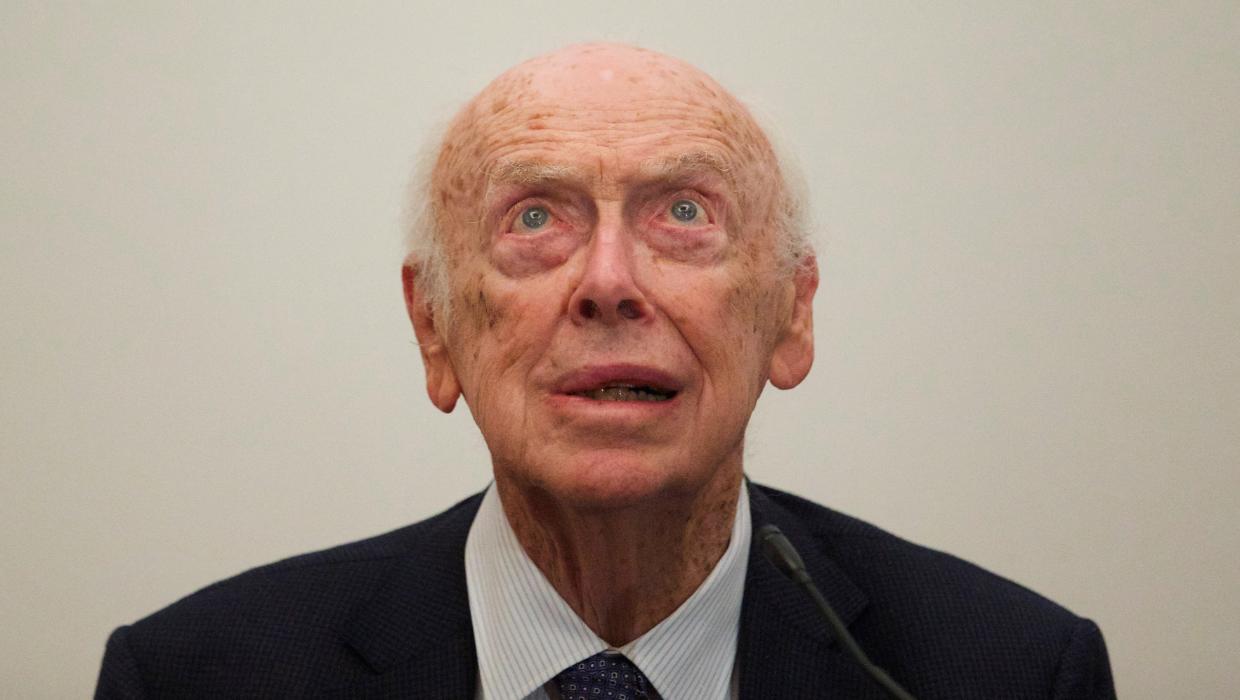Science
Renowned Scientist James Watson Passes Away at 95

James Watson, the acclaimed scientist who co-discovered the double helix structure of DNA, has passed away at the age of 95. His groundbreaking work in 1953 alongside Francis Crick revolutionized the field of genetics and earned them the Nobel Prize in Physiology or Medicine in 1962. Watson’s contributions to science were profound, shaping modern biology and genetics, but his later years were marred by controversy due to his remarks on race and intelligence.
Born on April 6, 1920, in Chicago, Illinois, Watson displayed an early interest in science, ultimately leading him to pursue a PhD at the University of Chicago. At just 24, he teamed up with Crick at the University of Cambridge, where their insights into DNA structure laid the foundation for molecular biology. Their discovery not only unlocked the secrets of heredity but also paved the way for advancements in fields ranging from medicine to forensic science.
Despite his scientific acclaim, Watson’s legacy became complicated following a series of public comments deemed offensive. In interviews and public appearances, he made statements that many considered to be racially insensitive, leading to widespread condemnation from the scientific community and the public. These remarks resulted in his resignation from the board of the Cold Spring Harbor Laboratory in 2018, an institution he had significantly influenced.
Watson’s death on October 19, 2023, has prompted reflections on his complex legacy. While many celebrate his monumental contributions to science, others emphasize the importance of accountability and the impact of harmful rhetoric. The scientific community remains divided on how to honor a figure who played a pivotal role in a major scientific breakthrough yet also propagated controversial views.
In the aftermath of his passing, numerous tributes have emerged, highlighting both his achievements and the lessons learned from his later controversies. Many scientists and institutions are calling for a renewed commitment to ethical standards in scientific discourse, underscoring the responsibility that comes with great intellectual influence.
As the world reflects on the life of James Watson, it becomes clear that his story serves as a reminder of the duality inherent in human achievement—the capacity for brilliant discovery alongside the potential for significant missteps.
-

 World3 months ago
World3 months agoTest Your Knowledge: Take the Herald’s Afternoon Quiz Today
-

 Sports3 months ago
Sports3 months agoPM Faces Backlash from Fans During Netball Trophy Ceremony
-

 Lifestyle3 months ago
Lifestyle3 months agoDunedin Designers Win Top Award at Hokonui Fashion Event
-

 Sports3 months ago
Sports3 months agoLiam Lawson Launches New Era for Racing Bulls with Strong Start
-

 Lifestyle3 months ago
Lifestyle3 months agoDisney Fan Reveals Dress Code Tips for Park Visitors
-

 World4 months ago
World4 months agoCoalition Forms to Preserve Māori Wards in Hawke’s Bay
-

 Health3 months ago
Health3 months agoWalking Faster Offers Major Health Benefits for Older Adults
-

 Politics3 months ago
Politics3 months agoScots Rally with Humor and Music to Protest Trump’s Visit
-

 Entertainment4 months ago
Entertainment4 months agoExperience the Excitement of ‘Chief of War’ in Oʻahu
-

 Top Stories4 months ago
Top Stories4 months agoUK and India Finalize Trade Deal to Boost Economic Ties
-

 World4 months ago
World4 months agoHuntly Begins Water Pipe Flushing to Resolve Brown Water Issue
-

 Science4 months ago
Science4 months agoNew Interactive Map Reveals Wairarapa Valley’s Geological Secrets









